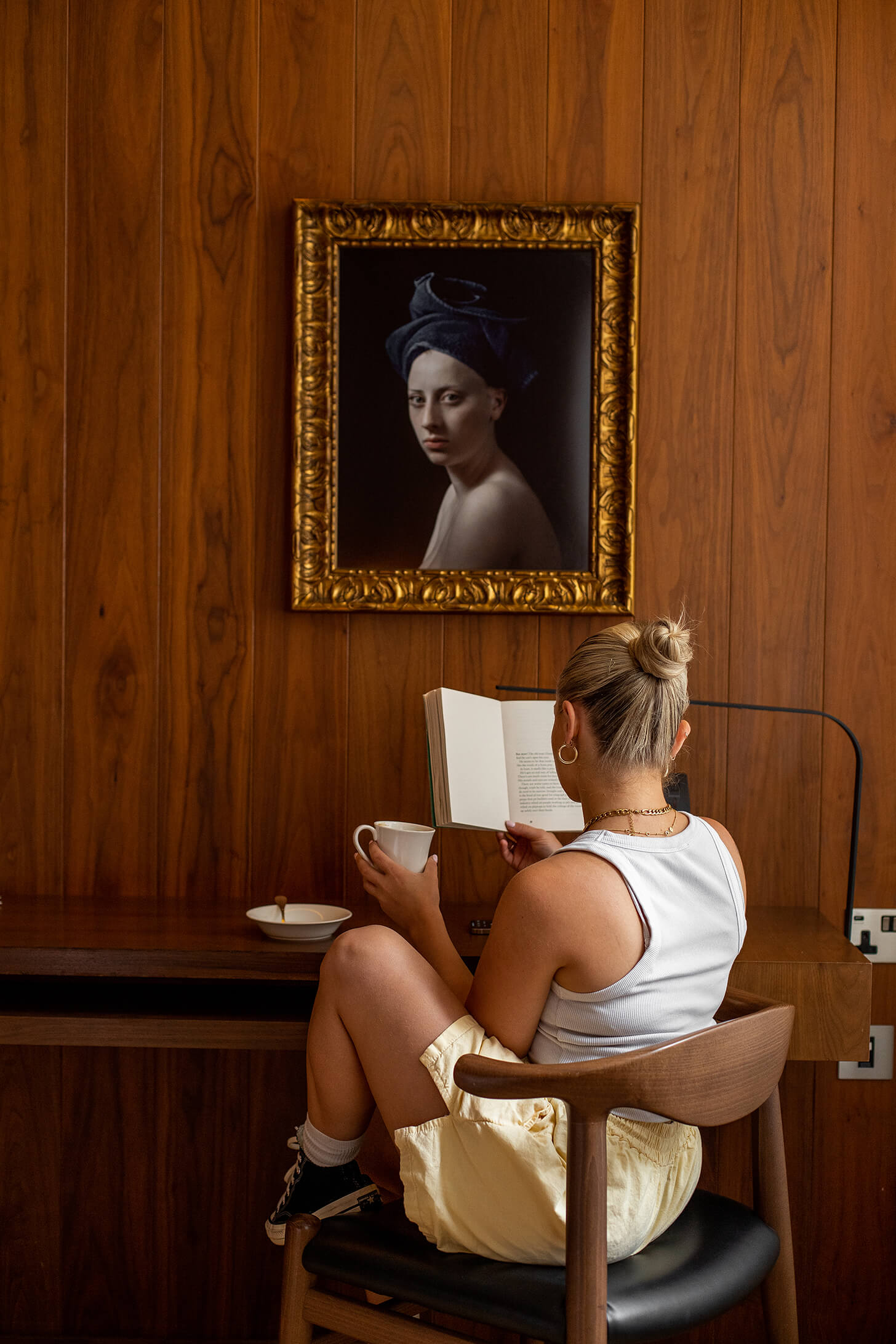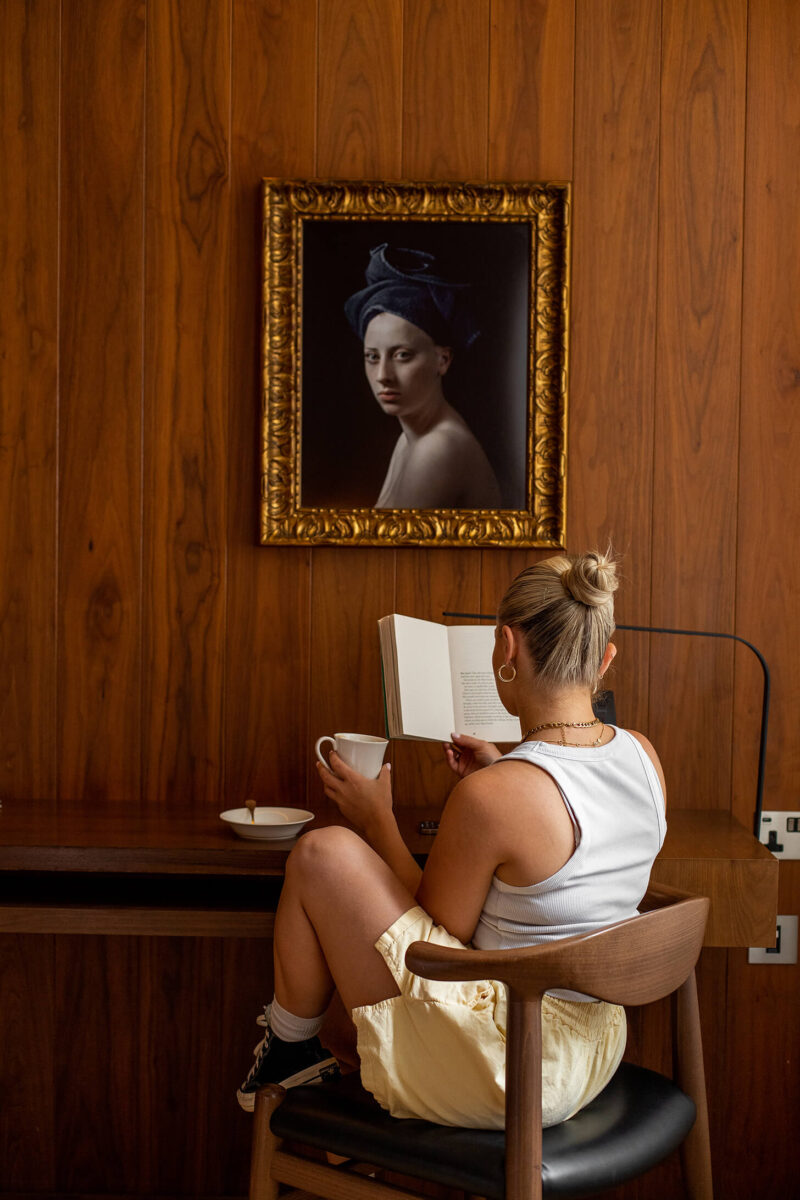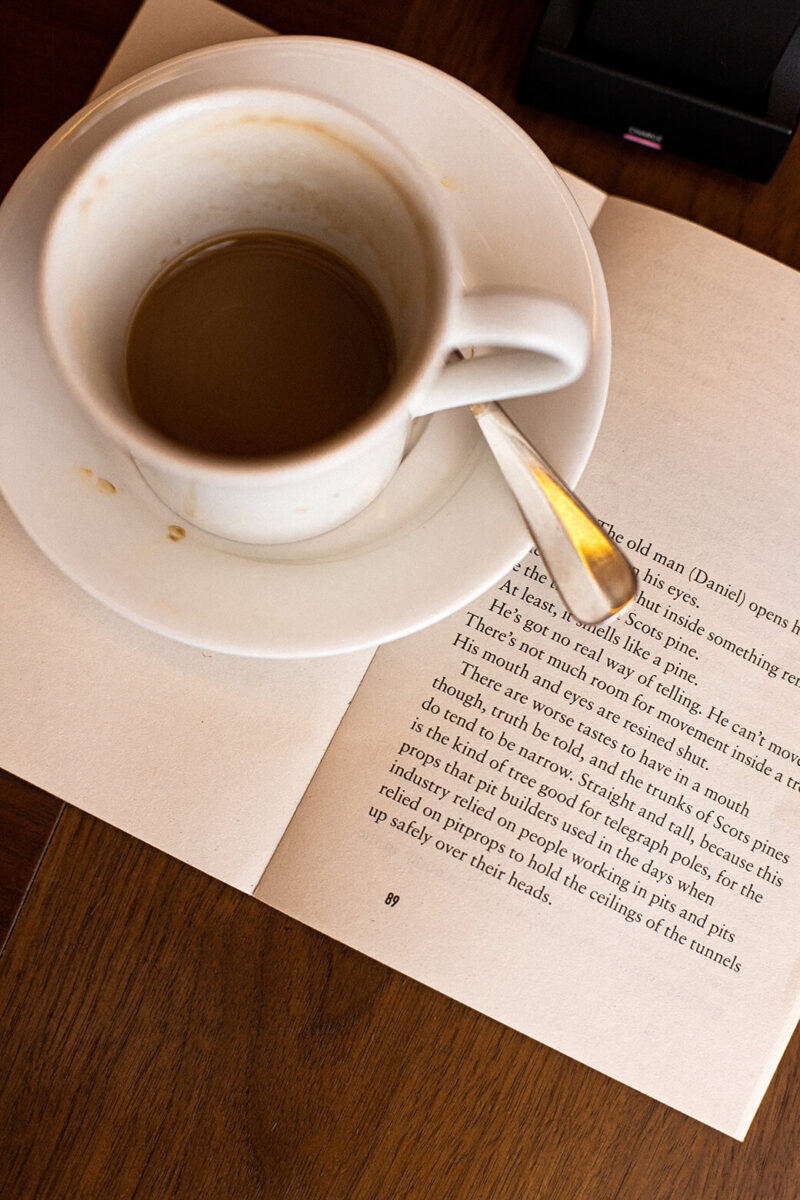Never lower your standards, never accept less than you deserve; though I haven’t physically seen these adages immortalized in canvas form, I can almost guarantee that they exist somewhere, probably in the arse-end of Redbubble or emblazoned across the back of a phone case, mocked up in stoic black font by an opportunist Etsy seller. See also: acceptance is the equivalent to settling; or: we accept the love we think we deserve. Basically anything which champions an individual’s right to only the best kind of love by refusing anything less than.
I see this kind of advice echoed online a lot. Heck, I’ve given and will probably give this advice again - it’s the sort of thing which sounds fabulously insightful after a glass or two of wine. "No, he's a prick! You were right to bin him. You deserve better than that, you know? You have to stand up for yourself. Don't accept less than you're worth." Whether the speaker follows their own advice is irrelevant; the words are a firm instruction for putting oneself first, for not becoming a doormat or the kind of person whose friends ‘mmm’ politely while they repeat the same complaint about their partner (again). And our intentions when parroting these encouragements are plainly good - most of us have accepted some pretty shitty treatment in the name of love, lust or loneliness at some point or another, only to see later with a clearer mind how much of a fool we've been. It’s rooted in self-value, a defiant response to a history of women who indeed settled for less than they desired or deserved, either through choice or, more often, through the prevailing circumstances offering little alternative. As you’re reading this, I’ll hazard a guess that you can think of somebody in your life who you think has settled for less in love, less than the maximum that would nourish a long and happy life. Of course you don’t know, but you do think. I certainly know of a few people who have.
The tricky thing about these pithy directives, however, is that they are, at times, at odds with what we’re told sits at the core of any healthy relationship: compromise. Give and take. And the older I get, the more experience I gain in relationships (I’ve spent almost the entirety of my adult life in one or another), the more difficult I find it to decipher at which point I'm compromising in a healthy way versus giving up too much. How do I know when the compromise is too far? How do I know when I’m sacrificing my own needs for the greater good of ‘the relationship’, the contract and commitment that exists almost as a third person in the arrangement? I can already hear the chorus from the girls' toilets: "if you feel like you're sacrificing too much, then you should be alone!", and that's fair! That's absolutely valid. But I also know that I'm stubborn and protective and the main character in my own existential theme park, in a way that my desire for independence can end up pushing people away. Even though I love love, I want to be in love, I wanted to be loved. It's not as simple as going with my gut because I have to make allowances for the dickheadery that sometimes occurs in my mind.
Disappointment is part and parcel of any partnership, especially one that has long since graduated from the heady haze of the honeymoon period - that’s according to Susanna Abse, anyway. Susanna recently released her book ‘Tell Me The Truth About Love: 13 Tales From The Therapist’s Couch’ and I found myself reading the promotional piece written for Vogue.com, a reflective roadmap of her time as a couples’ therapist and what she’d learned from her 35 years of work. Disappointment sat front and centre, ‘inevitable’ in our ourselves as much as our love lives and a critical factor in ‘the success and failure of our long-term relationships’.
What particularly resonated with me in Abse’s article was this: 'The strange thing about disappointment...is that those who’ve suffered a lot of it in their lives…often find it hardest to bear… For some people who’ve had lots of hard knocks, it can be very difficult to trust people.' To some degree I see that reflected in my personal relationships; I don’t find it difficult to trust people will be faithful or honest with me but I do often believe I know someone’s intentions better than they know them themselves. If a partner says to me "I won't be late", I'll say "okay sure, so I'll see you at 4am then?". If a partner says "I fancy you", I'll sift through my rolodex of reasons as to why that isn't genuine: perhaps I remarked recently that they hadn't been saying it or it's a compliment for the sake of a compliment - it doesn't come from a 'real' place. If my partner does the thing I've asked them to do, it's because I've asked them to do it and not because they want to do it, therefore it isn't sincere, therefore it's somewhat of a lie. I'm reading between the lines of the lines, practising my mental gymnastics to try and find what I think is the truth (this feels like a good moment to say yes, I am going to therapy). Every time I'm right (which, I won't lie, hasn't been rare), it further bolsters this idea that I know someone's intentions better than they do, as well as oddly causing me to mistrust myself further because I know that that cannot always be the case. It's a loop-de-loop of what should I believe?
Some of the experiences that have shaped me have often been those marred by good intentions failing to translate into reality, leading to a specific kind of hesitation that is forever trying to read between the lines, to preempt disappointment and prepare for it in advance. Being right rarely feels like a victory, but it has conjured a cocktail of mistrust both for romantic partners and for myself. There's a part of my mind that is forever anticipating what's to come, what could happen, what will likely happen, what could catch me off guard, and the multiple avenues such seeking opens up means I often land firmly in the space of "I don't know" - whether to trust my gut or the words of my partner.
In truth, I’ve had a hard time deciphering how I should ‘be’ in love. Disappointment and compromise are implicit within any relationship, but at which point do the lowering of personal romantic standards meet the necessary practice of compromise? How do I know I’m not doing myself a disservice? That’s what I always return to. And though the gears of this conflict have been grinding internally for some time, I’ve often been hesitant to articulate them because they teeter dangerously close to betraying the sense of independence I treasure so deeply. I never want to have sacrificed or lost out on life because of a partner; I’ve seen it happen many times before and not only does it smell of sexism (because in every scenario I've seen, it’s the woman who ultimately loses out: on time, on opportunities, on money, on security, on freedom and exploration), it also brings into question how I see myself as a person. As somebody capable; as somebody who won’t allow themselves to be taken advantage of; as somebody who has their head screwed on. When I admit that there are times when I’m not sure if I should be expecting more, or whether, actually, I have to submit somewhat to the natural disappointment - that perhaps my fear of being conned has allowed for very little give in the flexibility of a relationship - it opens the door for the criticism that I’m compromising on my self. ‘Never accept less’ morphs from a canvas quote to a failing, as if to ever make space for disappointment in relationships is to abuse your own self, to succumb to being second best, to crouch beneath the heel - a feminist defeat.
On the one hand I think this strain of empowerment is exactly that: empowering. It gives women the tools, language and confidence to prioritise themselves. But certainly for me, I’m having to find space for prioritisation of the self and compromise within the relationship to co-exist - to not read every disappointment as either a direct or indirect attack on my potential happiness. This confusing tangle of emotions all stem from a place of fear - fear that I’ll get to a certain point in my life and regret not making wiser decisions, fear that I’m making stupid decisions now from a place of weakness and vulnerability - but illuminating the confusion itself is to some degree liberating. Perhaps I am making excuses to accept less-than in relationships because I don’t want to be alone - it doesn’t feel that way to me, but there’s only so far I can psychoanalyse myself, my deeper thoughts, the thoughts that sit beneath those, the thoughts that bring me around full circle, before I accept that I’m confused. I don’t know what the right thing to do is. I could be making mistakes. That’s kind of liberating.
When I say I want to be more open to disappointments in relationships, that I need to at times relax the rigid standards that protect my sense of self, it sounds as if I’m conceding to second-rate treatment. But it isn’t that. It’s an acceptance not only of the imperfection of a romantic partner but of myself too. Love and relationships are joyful, exciting, nourishing, fulfilling, but they’re also sometimes boring, bland, a bit dead - not giving what they’re allegedly supposed to give. Within these moments it’s really fucking difficult to know whether what you’re experiencing is an inevitable lull, part of the many hills and valleys a long-term relationship will move through, or whether the partnership has come to an end and you should be calling it quits. Some people are fortunate enough to have the clarity to understand the difference, to ‘just know’, as we often repeat ("you’ll know when it’s come to an end, you’ll just know"), but many of us will never experience that moment of surety. We never will. Instead we have to make a decision and take a chance either way, and to do so, we first have to accept that it may be disappointing. But it may also be wonderful.
This drive to be independent, to have absolute, dictatorial control of my life and my mood acts both as a protective superpower and as self-restricting blinkers. To be in love, I have to accept that I will at times be disappointed - as I too will disappoint in return. Perhaps to invite these disappointments is a mistake and a failure on my part to take care of myself. It could also be the gateway to a more flexible, honest, forgiving form of relationship. Either way: I don’t know. But the confusion is all part of the process, both of my wider life and of my desire to love.
 Idle Waters: Quaint Cottage Countryside Retreat
Idle Waters: Quaint Cottage Countryside Retreat
 Why Solo Travel & Why Now? What Solo Trips Mean To *Us*
Why Solo Travel & Why Now? What Solo Trips Mean To *Us*
 Unplugged Retreat: A ‘No Phones’ Countryside Break
Unplugged Retreat: A ‘No Phones’ Countryside Break
 New Home Tour
New Home Tour



